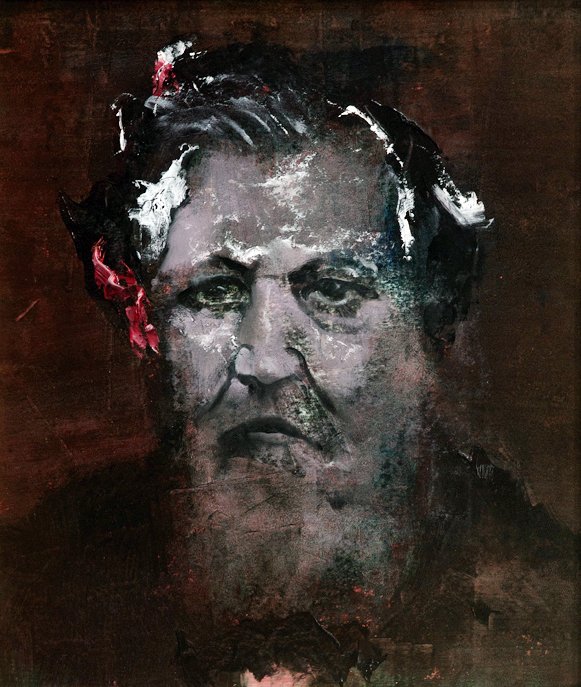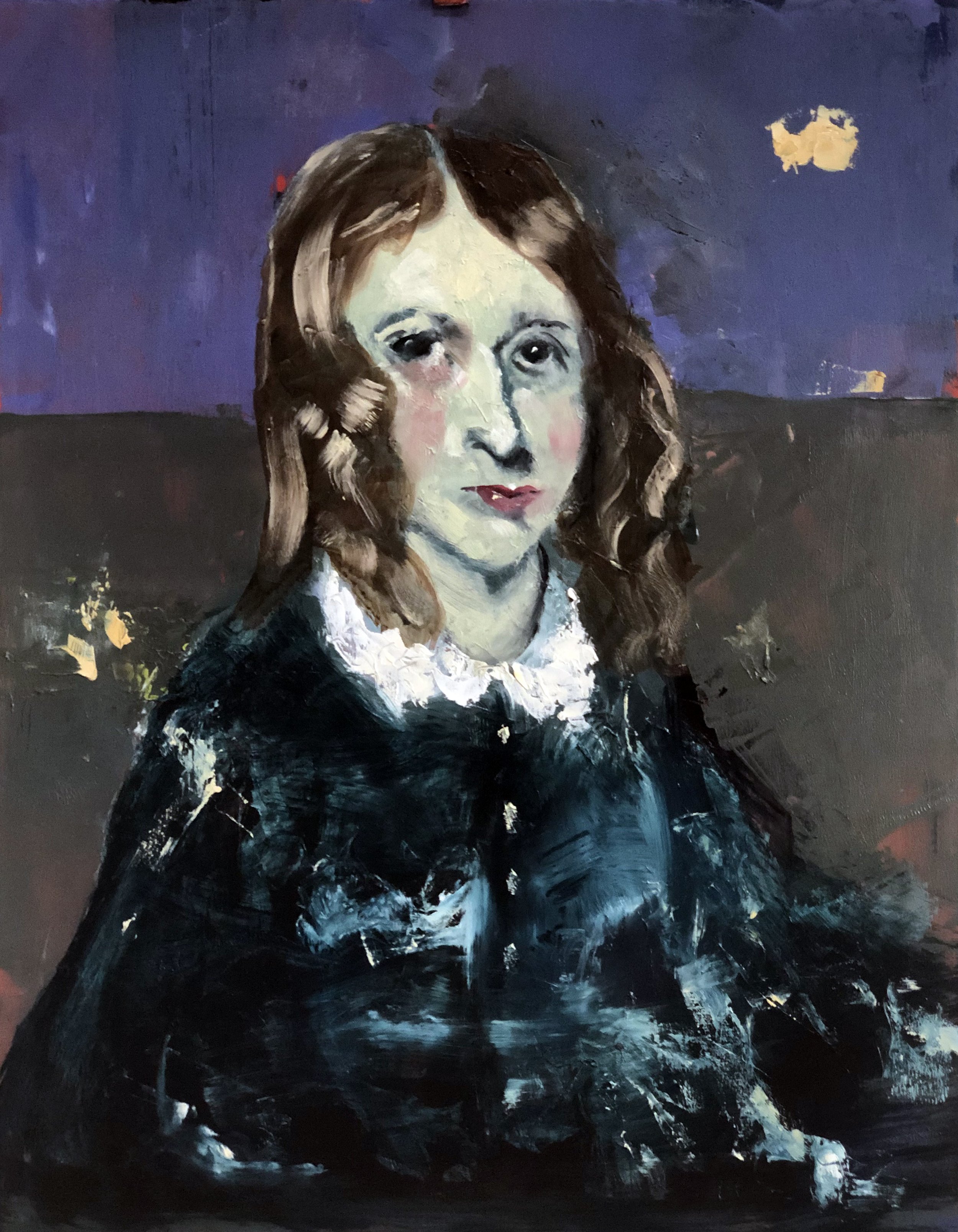Robert Browning (1812-1889) was an English poet and playwright whose mastery of the dramatic monologue made him one of the foremost Victorian poets. His poems are known for their irony, characterization, dark humour, social commentary, historical settings, and challenging vocabulary and syntax.
Robert Browning
“My sun sets to rise again.”
Oil on Paper on Board 24x29cm (Available for Sale)
Born in South London he was educated at home by a tutor, using the resources of his father's library. By the age of 12 encouraged by his father, Browning had written a book of poetry, which he later destroyed for want of a publisher. He refused a formal career and ignored his parents' remonstrations by dedicating himself to poetry. He stayed at home until the age of 34, financially dependent on his family until his marriage. His father sponsored the publication of his son's poems.
Elizabeth Barrett-Browning (1806-1861)
Oil on Board 45x35cm (Available for Sale)
In 1845, Browning met the poet Elizabeth Barrett, six years his senior, who lived as a semi-invalid in her father's house in Wimpole Street, London. They began regularly corresponding and gradually a romance developed between them, leading to their marriage and journey to Italy (for Elizabeth's health) on 12 September 1846. From the time of their marriage and until Elizabeth's death, the Brownings lived in Italy, residing first in Pisa, and then, within a year, finding an apartment in Florence at Casa Guidi (now a museum to their memory). In 1861, Elizabeth died in Florence and the following year Browning returned to London. In the remaining years of his life Browning travelled extensively and in 1878 he revisited Italy for the first time in the seventeen years since Elizabeth's death. Browning died at his son's home Ca' Rezzonico in Venice on 12 December 1889 and was buried in Poets' Corner in Westminster Abbey.
Robert Browning
"Childe Roland to the Dark Tower Came"
Oil on Paper 28x28cm (Available for Sale)
"Childe Roland to the Dark Tower Came" was written in 1852. The title, which forms the last words of the poem, is a line from William Shakespeare's play King Lear. The poem opens with Roland's speculations about the truthfulness of the man who gives him directions to the Dark Tower. Browning does not retell the Song of Roland; his starting point is Shakespeare. The gloomy, cynical Roland seeks the tower and undergoes various hardships on the way, although most of the obstacles arise from his own imagination. Upon reaching the Tower, Roland finds all those who failed to reach the tower, and under it he finally shouts "Childe Roland to the dark tower came". What Roland finds inside the tower is not revealed. Carol Rumens in the Guardian Newspaper Books Blog considers it “tempting to read the poem as an exploration of an inner state of mind, or even an account of "the battle with depression" even though Browning denied writing conscious allegory”. She concludes that "Childe Roland" is one of darkest and greatest poems.












